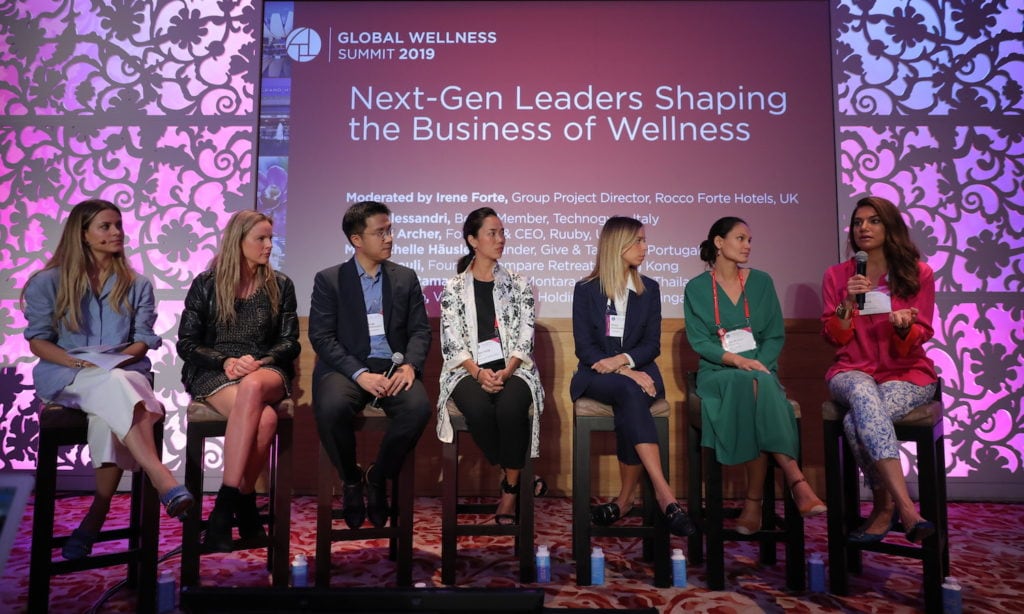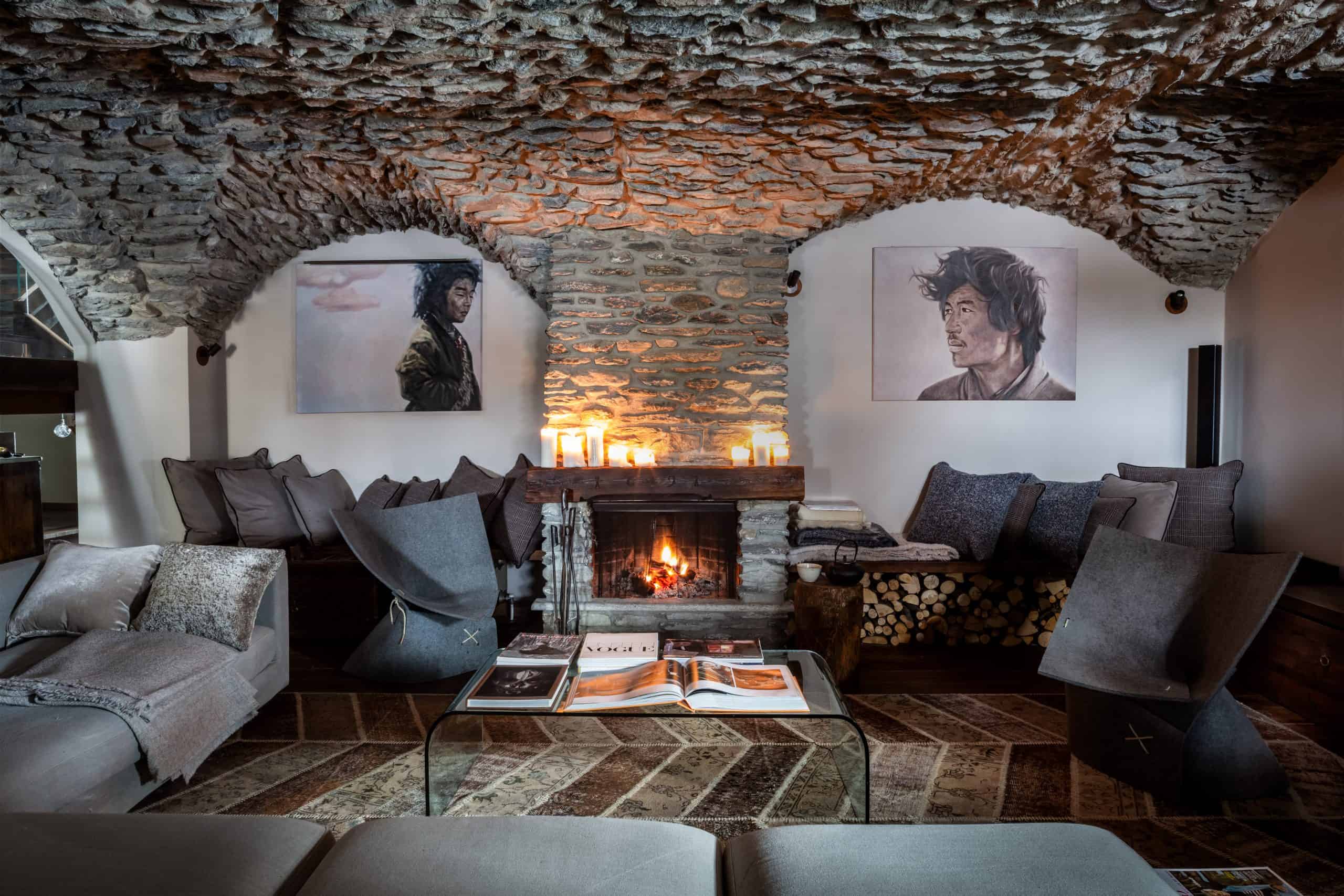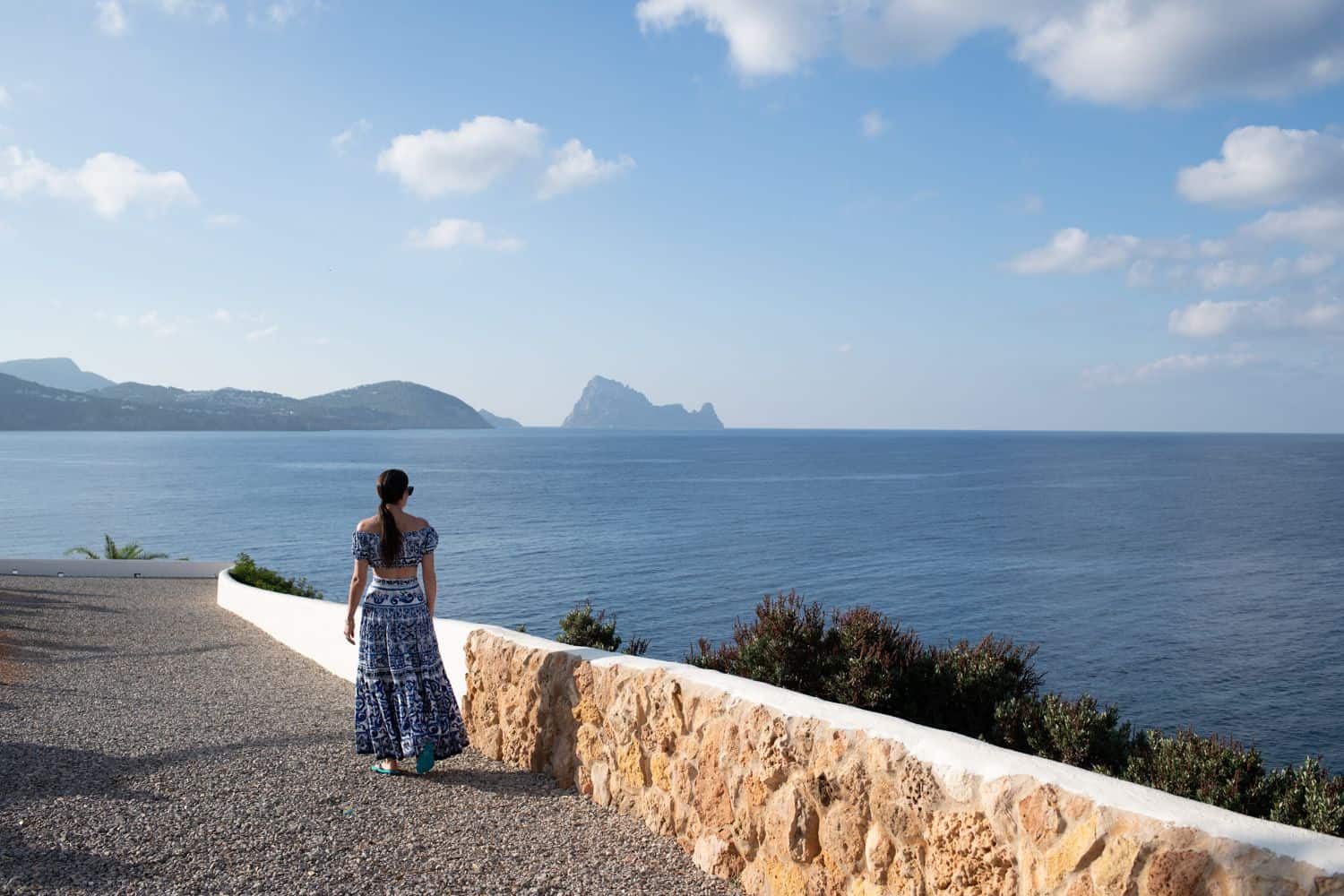While trends are usually set by the younger generations, it tends to be the older generation in the driving seat of business and industry. However, a new wave of young leaders in wellness are bringing in fresh ideas to family businesses or disrupting the status quo with their entrepreneurial endeavours. At the Global Wellness Summit 2019, Irene Forte, the Group Project Director for Rocco Forte, hosted a panel with the next-gen leaders who are shaping the business of wellness.

Family Business
How can family businesses adapt to changing times? Built on tradition, innovating can be one of the biggest challenges facing those who inherit the legacy of a family business.
Kittisak Pattamasaevi, CEO of Montara Hospitality Thailand who operates luxury resorts like Trisara noted the 90% of family businesses don’t make it past the third generation. “Innovation in a family business cannot come from top-down, because of the slow turn over of management—people stay in their roles for 30 years. Family businesses are slower to adapt.” He noted that acquisition was another challenge facing them, as industry talent are looking for companies in which they can climb a career ladder and make a big impact in the business, which is at odds with the perception of a family business.
“To be innovative, we need to have a really strong audacious vision.”
Kittisak Pattamasaevi, CEO of Montara Hospitality Thailand
“To be innovative, we need to have a really strong audacious vision: it’s the only way to get good people to join the team,” said Pattamasaevi. “When we started Trisara 15 years ago, we wanted to have a high staff-to-guest ratio, and people thought it was crazy but we proved it worked. Last year, we won Phuket’s first Michelin star. We brought in a new 27-year-old chef: we noticed he was really good and gave him the opportunity to open his own farm-to-table restaurant.”
Ren Yung Ho, Vice President of Banyan Tree Holdings Limited, agreed with Pattamasaevi. “Things take a little bit longer in a family business. One of the best ways to do change is to incubate an idea outside of the company and bring it in later.” Yung Ho spoke of her own experiences taking time out of the family business to develop her own business and ideas, before taking back digital innovations to regenerate parts of the business: “We’re trying to increase our touchpoints with our customers through things like e-commerce.”
“One of the best ways to do change [in a family business] is to incubate an idea outside of the company and bring it in later.”
Ren Yung Ho, Vice President of Banyan Tree Holdings Limited
For Erica Alessandri, Board Member of Technogym Italy, she’s been involved in the family business her entire life. “Wellness for me is not just a lifestyle but truly a family mission. In the 80s when fitness was more hedonistic, my father launched this idea of a wellness philosophy: treating your body well and your mind well.” Her projects to keep Technogym competitive include technological innovations as well as community and social initiatives to generate economic growth as well as attitude changes towards issues like sustainability. “Wellness is an opportunity for everyone: for governments to reduce the cost of healthcare, and to work on prevention.”
Filling the Gap
While innovating in a family business might prove tricky, some next-gen leaders are disrupting the industry with fresh ideas. London-based entrepreneur Venetia Archer, founder and CEO of Ruuby, saw a gap in the market for on-demand beauty services. “The problem we saw with Millennial and Gen-Z is that they don’t have time. We connect our clients with a network of freelancers to provide beauty services in the home. Our mission is to make life easier.”
Currently available in London, Archer has plans to expand to cities around the rest of the UK and mainland Europe. Since launching in 2015, the beauty concierge platform has also expanded its offerings into wellness therapies too: “We do vitamin drips, cosmetic injections, sound bowls. We’re working with around 50 hotels in London, offering either beauty services in the room as an extension of our home-visit service or in the spa themselves. In the future, we’d love to integrate VR so customers can see what different makeup or hair will look like before they buy.”
“The problem we saw with Millennial and Gen-Z is that they don’t have time… Our mission is to make life easier.”
Venetia Archer, Founder and CEO of Ruuby
Mar Michelle Häusler similarly created her company, Give & Take Lab, in response to a gap in the market. At the height of her career, Häusler switched the trading floors for soul searching in yoga ashrams in India. Her solution was to bridge her knowledge of finances and wellness to help people spend in a way that matters for the world and their own health. “It started out for individuals, just giving talks on purpose and money. Now I’m moving into working with organisations. If we look at the UN Sustainable Development Goals and break it down to each individual, if each of us took a little step, we could achieve those goals together. We’re trying to align and empower people to take these steps. People are looking for experiences, not products, and they’re looking at the whole chain and ecosystem of what they purchase.”
“We’re the first platform connecting the primary and secondary wellness traveller.”
Dervla Louli, Founder of Compare Retreats
Likewise, Dervla Louli explained what inspired her to begin Compare Retreats: “Our goal is to make finding and booking wellness retreats transparent. There are 15,000 out there, so we remove the paradox of choice by only working with the best.” Much like Archer’s venture in London, Louli’s platform is targetted helping time-poor health-conscious travellers make informed decisions. “We have certified wellness experts review all of them, and use our platform to educate, motivate and inspire. We’re the first platform connecting the primary and secondary wellness traveller.”



